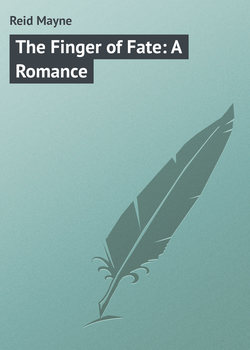Читать книгу The Finger of Fate: A Romance - Reid Mayne - Страница 16
Chapter Sixteen
Empty Pockets
ОглавлениеIf he who had surprised the painter at his task did not present the exact classic type of the stage bandit, there was one upon the ground who did. This man stood a little in advance of the others with that easy air that betokened authority. There was no mistaking his position. He was the chief. His dress did not differ, in cut or fashion, so materially from that of his followers; it was only more costly in the material. Where their breeches were velveteen, his was of the finest silk velvet. Besides, there was a glitter about his arms and a sparkle on the clasp which held the plume in his Calabrian hat that bespoke real jewellery. His face, moreover, was not of the common cast; it was of the true Roman type, the nose and chin of exceeding prominence, with a broad oval jaw-bone indicative of determination. He might have been deemed handsome but for an expression of ferocity – animal, almost brutal – that gleamed and sparkled in his coal-black eyes. If not handsome, he was sufficiently striking, and Henry Harding might have fancied himself confronted by the renowned Fra Diavolo. Had he stepped from behind the proscenium of the scenic stage, or come bounding from a “back flat,” the Transpontine spectators would have hailed him as the hero they had come to the theatre to see.
For some seconds there was silence. The first spokesman had slunk into the rear of the band; and all stood waiting for the chief to commence speech or action. The latter stood looking at the young artist, scanning him from head to foot. The scrutiny seemed to give him no great pleasure. There was not much booty to be expected in the pockets of such a threadbare coat; and a grin passed over his dark features as he pronounced, in a contemptuous tone, the word —
“Artista?”
“Si, Signore,” replied the artist, with as much sang froid as if he had been answering an ordinary question. “At your service, if you wish to sit or stand for your portrait.”
“Portrait? Bah! What care I for your chalks and ochres, signor painter? Better if you’d been a pedlar with a good fat pack. That’s the sort of toys for such as we. You’re from the cittada? What’s brought you up here?”
“My legs,” replied the young Englishman, thinking that a bold front might be best under the circumstances.
“Cospetto! I can tell that without asking. Such boots as yours don’t look much like the stirrup. But come, declare yourself. What have you got in your pockets; a scudi or two, I suppose. How much, signore?”
“Three scudi.”
“Hand them over.”
“Here they are – you are welcome to them.”
The brigand took the three coins, with as much nonchalance as if he had been receiving them in liquidation for some service rendered.
“This all?” he asked, again surveying the artist from head to foot.
“All I have got upon me.”
“But you have more in the cittada?”
“A little more.”
“How much?”
“About four score scudi.”
“Corpo di Bacco! a good sum; where is it lying?”
“At my lodgings.”
